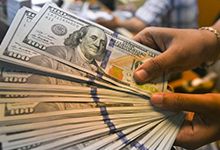The US high-yield bond market is on track for its busiest week in about a year with more than US$11bn of junk bonds expected to price by the end of the week.
The Federal Reserve’s rate pause, as well as a rebounding stock market and less risk adverse investors have all contributed to a more stable corporate debt market.
The heavy volumes - the biggest weekly volumes since March 2018, according to IFR data - follow a massive tightening in spreads since the start of 2019, and a string of weekly inflows into high-yield funds.
On Thursday, Lipper said US$1.040bn of cash poured into high-yield funds for the week ended Wednesday, taking the year’s inflow to US$8.63bn. Average spreads, meanwhile, are 134bp tighter year-to-date at 399bp over US Treasuries, ICE BAML data shows.
Those buoyant conditions have opened the door to companies - large and small, and across all ratings - that have to finance acquisitions, or refinance debt.
And come they have.
It started to get busy in late January and the first two weeks of February, when 28 tranches were sold in three weeks, IFR data shows. Since then, there has been a steady flow, and deals are still getting done.
So far this week, there were 9 tranches priced totaling US$6.420bn, with two more deals to come: a US$2bn SS&C Technologies offering late Thursday and a US$2.95bn Johnson Controls issue set for Friday.
Despite it being the busiest week for issuance in the past year, there was no shortage of demand.
All three deals in the primary market on Thursday were upsized.
“The market remains constructive,” said one portfolio manager. “There’s a guarded enthusiasm for deals, where people are willing to put money to work, but no one is too willing to pick up the riskiest stuff.”
WHAT A DIFFERENCE
The only difference between now and six months ago, is that it’s not a one-way street for issuers. They can no longer call all the shots.
Investors are showing a preference for secured debt and are pushing back on unappealing covenant terms.
Among the biggest issues of the week is the offering that will help finance Brookfield Business Partners’ buyout of Johnson Controls’ Power Solutions business.
The borrower looks set to price the deal at lower borrowing costs than expected, but that’s only after it conceded on a number of covenants that had troubled investors because they were considered too investor friendly.
Still, Brookfield’s decision may have been an economic one as the books on both the loans and the bonds were heard to be heavily oversubscribed.
Without the changes, it simply would have had to pay up a bit more, investors said.
“Wall Street hasn’t gotten religion all of a sudden,” said Andrew Feltus, co-director of high-yield at Amundi Pioneer. “I just think there is more rationale about the trade-off between pricing and covenants. Six months ago, there was none.”
PLAYING IT SAFE
But Power Solutions wasn’t the only issuer that had to negotiate with a more disciplined buyside, as Target Hospitality had to hike pricing and change bond documents. nL5N20V4GO
Target is a newly merged business that operates housing facilities for oil workers and government contractors, primarily in the oil-rich Permian Basin in Texas, as well as for asylum seekers on the US-Mexican border.
It priced a US$340m five-year non-two senior secured bond this week with a yield of 9.75%.
But to get the deal done, it had to raise that from initial price talk of 9% area, which was already about 200bp more than where average Single B rated bonds are trading.
The terms still had to be sweetened to get the buyside on board, with several covenant adjustments.
Investors overall also seem to be showing a preference for secured debt, which some said showed caution about the health of the economy and the lateness of the cycle.
Several of the issuers this week, including pharmaceutical company Endo, looked to sell new secured bonds to refinance unsecured debt as they sought to tap into higher demand for safer investments.
That’s also a sign of nervousness over the health of the economy and the lateness of the cycle.
“The market is concerned about credit quality and is naturally moving up in quality,” Mike DePalma, CEO of Phase Capital and portfolio manager of the high yield exchange traded fund, told IFR.
He expects the market to falter and CCC bonds, which have lagged higher rated debt on a risk-adjusted basis in the rally, are unlikely to catch up.
“I think we’re late in the cycle, we’ll start to see signs of an economic slowdown and we will see progressively wider spreads throughout the course of the year.”
